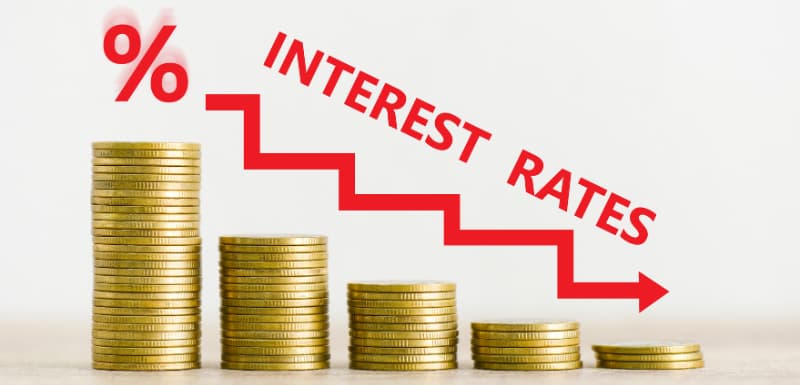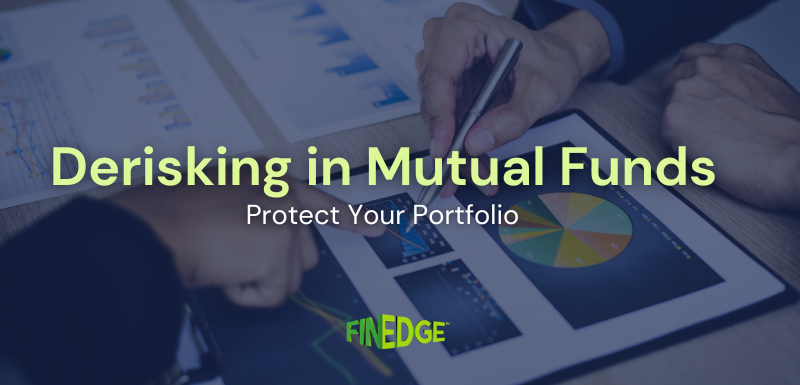Alternative Investments Are Booming: Be Aware of the Risks Before Investing
.png)
In the last few years, some fintechs have brought alternative investments within the reach of retail investors. Earlier, these opportunities were limited to specific investors like corporates, HNIs, family offices, etc. As alternative investments are accessible to retail investors, they have become popular in the last few years, and continue to grow at a fast pace. Before taking the plunge into alternative investments, retail investors should weigh the risks and rewards properly. So, what are some of the alternative investments available, and the risks that they carry?
Alternative Investment Options
Some of the alternative investment options available to retail investors include the following.
P2P Lending
Peer-to-peer or P2P lending platforms are intermediaries between borrowers and lenders/investors. These platforms are regulated by the Reserve Bank of India (RBI). The borrower can approach the platform for a loan. The platform does the credit assessment and makes the borrower's profile and loan application live on the platform.
Lenders/investors can check the loan application and decide whether and how much they want to lend/invest. The money is transferred to the borrower at the specified interest rate for the specified period. The borrower pays the regular EMI, which is transferred to the lender/investor.
Some P2P lending platforms take money from investors and decide whom to lend based on specified criteria. Some P2P lending platforms have also tied up with other fintechs, allowing their members to invest in loans.
Asset Leasing
A corporate needing certain assets to run the business may either buy or lease them. To lease the assets, they approach an intermediary platform. The platform does the due diligence and makes the deal live on the platform. The platform investors can check the deal details and decide whether and how much to invest.
Once the deal is completed, the money is used to buy the specified assets and leased to the corporate. The corporate pays a specified amount every month, which is transferred to the investors.
Invoice Discounting
An SME, MSME, startup, etc., may have sold goods to a large corporate and raised an invoice on them. The large corporate may have a payment policy of 30 to 120 days. The SME, MSME, startup, etc., may need money urgently to reinvest in the business and expand it. In such a scenario, the invoice details are shared with an intermediary invoice discounting platform.
The platform does the risk assessment and shares the deal details live on the platform at a discounted rate. The investors can evaluate the deal details and decide whether and how much to invest. Once the deal is 100% subscribed, the money is transferred to the SME, MSME, startup, etc. On the invoice payment due date, the large corporate makes the payment, which is transferred to the investors. The investor's profit is the difference between the invoice amount and the discounted rate.
One of the platforms specialises in invoice discounting deals related to movies and web series released on OTT platforms.
Agricultural Investing
Some startups raise money from investors and deploy it in agriculture and allied activities. The investors are promised a specified return for a specified tenure on their investment. The startup sells agricultural produce in the market and makes money. The investors are given the specified return at specified intervals as mentioned at the time of investment.
Fractional Real Estate
Real estate is one of the favourite investment products for many Indians. However, due to the high capital investment, not everyone can invest in it. To solve this challenge, some platforms have emerged that offer fractional real estate.
The platform identifies a property, does the due diligence, and makes the details live on the platform. The property is leased/rented to a corporate for a long tenure at a specified rent, with rent escalation clauses at specified intervals. The investors can evaluate the property and deal details and decide whether and how much they would like to invest.
Since multiple investors can co-own the property, the investment amount for each investor comes down. Every investor gets a fractional ownership in the property in proportion to the investment made.
Alternative Investment Funds (AIFs)
AIFs have existed for a long and are not new like other alternative investments discussed above. An AIF is a privately pooled investment vehicle that collects money from investors and invests on their behalf. The investors usually include HNIs, family offices, corporates, etc. The money raised is invested in private equity, real estate, derivatives, venture capital, etc.
The minimum investment amount is high and may have a lock-in period. Please note that AIFs invest in complex products wherein retail investors may not understand all the risks involved. The high minimum investment can be an entry barrier for retail investors.
Risks Involved in Alternative Investments
The above section lists some alternative investment options that have come up in the last few years. So, what are the risks involved in the above alternative investments? Let us discuss them.
Regulatory Action
From the above-discussed alternative investment opportunities, some of them are being provided by regulated entities, while others are unregulated. For example, all P2P lending platforms are regulated by the RBI. For platforms offering asset leasing, invoice discounting, agricultural investing, etc. as of now there is no specified regulator.
These platforms face the risk of regulatory action. For example, recently, in January 2024, SEBI launched an investigation into an agricultural investing platform and ordered the freezing of bank accounts till further notice. It has resulted in the startup's operations coming to a grinding halt, leaving the investors anxious and wondering what will happen to their investments.
Please note that while some platforms, such as P2P lending platforms, are regulated, it only removes the risk of regulatory action to some extent compared to an unregulated entity. Investors may be exposed to other risks even with regulated entities.
Payment Delay Risk
With regards to invoice discounting, asset leasing, P2P lending, etc., investors can face the risk of payment delays. For example, in an invoice discounting deal, the corporate may delay paying the invoice to the SME, MSME, startup, etc. The delay from the corporate may lead to a delay in the investors getting paid on deal maturity.
Similarly, a corporate may delay the asset leasing payment or a borrower on a P2P lending platform may delay the EMI payment.
Default Risk
If a borrower on a P2P lending platform delays the EMI payment beyond a specified number of days (usually 90 days), they will be classified as a defaulter. Borrower defaults on P2P lending platforms are common. Similarly, if a company delays payment on an invoice discounting platform or an asset leasing platform beyond a specified number of days, it will be classified as a default.
For example, in September 2023, a cloud kitchen startup defaulted on an asset leasing deal on one of the biggest asset leasing platforms. The Founder/CEO was untraceable. The platform faced the challenge of recovering the assets leased and repaying the investors.
Similarly, in December 2023, a startup (B2B retail tech platform) defaulted on an invoice discounting deal worth crores of Rupees on one of the biggest invoice discounting platforms. The platform has been able to recover some money from the startup while the investors anxiously wait for their remaining money.
Other Risks
Retail investors are exposed to other risks when they invest through these alternative investment platforms. For example, on a fractional real estate platform, the retail investors don't have the technical knowledge to understand the legal terms and conditions related to the property documents, the deal structuring, etc. In an agricultural investing startup, retail investors don't have the bandwidth to visit the farm and see whether the crops are being grown and sold, as mentioned in the deal.
Should you invest in alternative investments?
We have discussed some alternative investment options that have emerged in the last few years. We have also discussed some of the risks associated with them. As an investor, you should first build an investment portfolio with traditional asset classes such as equity mutual funds, fixed-income products (debt funds, bank FDs, Government small saving schemes, etc.), gold, etc. These are regulated products and have a long track record of performance.
Based on your financial goals, once you have built an investment portfolio with traditional asset classes, you may invest some money in alternative investments. You may allocate 5-10% of your investment portfolio to alternative investments. Before investing, spend time understanding all the risks involved. Always invest through regulated platforms. However, regulated platforms only reduce the risk of regulatory action to some extent. The other risks, like payment delay risk and default risk, remain.
Your overall objective of investing should be aligned with your financial goals. Some new-age financial products that promise high returns may look trendy and appealing. However, if you don’t understand the risks fully, it can be detrimental to your overall goal-based investment journey.
Your Investing Experts
Relevant Articles
Interest Rates May Go Down: Should You Lock Into High FD Rates or Invest in Duration Debt Funds?
In the last few monetary policy meetings, the Reserve Bank of India (RBI) and the US Fed have maintained a status quo on interest rates. Throughout most of 2022-23, most central banks increased interest rates to combat high inflation.
Ten Important Features Of Your Health Insurance Policy
Health insurance isn’t just a safety net—it’s a necessity! From pre-existing conditions and waiting periods to claim settlement ratios and sub-limits, knowing your policy inside out can save you from unexpected financial burdens. Choose wisely and ensure your coverage meets your family’s needs!
De-risking of Mutual Funds: Protecting Your Portfolio Before Life Goals
When you are close to achieving an important financial milestone, whether it’s retirement, your child’s education, or buying a home, your biggest risk is a sudden market downturn. Years of disciplined investing could be undone by short-term volatility at the last stretch. This is where the de-risking of mutual funds becomes crucial.



